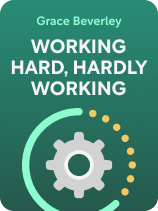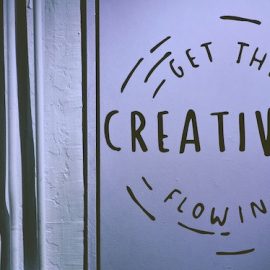

This article is an excerpt from the Shortform book guide to "Working Hard, Hardly Working" by Grace Beverley. Shortform has the world's best summaries and analyses of books you should be reading.
Like this article? Sign up for a free trial here.
How long is your to-do list? Do time-sensitive tasks get lost in the shuffle? Do urgent items constantly keep important items on the back burner?
Grace Beverley says there’s a better way. She recommends the Eisenhower Method as a replacement for a traditional to-do list. She explains how it can help you increase productivity, minimize wasted time, and stay organized.
Keep reading to learn how the Eisenhower Method works and consider how it might be a valuable work companion.
The Eisenhower Method
A conventional to-do list includes a lineup of tasks you must complete, whether they’re in order of importance or not. Beverley argues that to-do lists aren’t conducive to productivity because they fail to prioritize tasks. For instance, they might place unimportant tasks or tasks with far-off deadlines higher on the list than tasks that are important and time-sensitive. As a result, you waste your time on unimportant tasks and work more hours than you need to.
(Shortform note: While you may want to ditch to-do lists when planning your workload, you may still want to use them for a different purpose: managing your worries. Writing a simple to-do list before bed, specifically, may help you sleep. When you write down what you need to do the next day, you’re less likely to stay awake worrying about those tasks. For instance, one study showed that people who spend five minutes writing to-do lists before bed fall asleep faster than people who don’t.)
Beverley recommends the Eisenhower Method (EM) as a replacement for the traditional to-do list. The EM has you assess how crucial and pressing your tasks are so you can decide which to prioritize, which to delegate to others, and which to skip. Crucial tasks are important to complete at some point to achieve your long-term goals, while pressing tasks have upcoming deadlines. To implement the EM, follow these four steps:
First, complete crucial and pressing tasks. For example, if you’re a journalist, work first on a labor-intensive article with an impending deadline.
(Shortform note: Some experts specifically recommend doing crucial and pressing no later than today or tomorrow.)
Second, complete tasks that are crucial but not pressing. For instance, work on a large article that’s due in several weeks.
(Shortform note: Since crucial tasks aren’t pressing, you may work on them inefficiently—which could reduce your productivity and delay your achievement of long-term goals. Therefore, consider breaking important tasks into smaller subtasks with upcoming deadlines, as some research suggests that you can work more efficiently by setting short deadlines for specific tasks. In Scarcity, Sendhil Mullainathan and Eldar Shafir explain that this is because we naturally work more effectively as a deadline looms.)
Third, assign unimportant but pressing tasks to others. This will prevent you from working extra hours to complete these tasks. For example, if you’ll be leaving for vacation soon and it would be nice (both not necessary) to put an automatic vacation responder on your email, ask your assistant to draft it and set it up.
(Shortform note: Beverley’s suggestion to delegate applies most clearly to people who have employees working under them, such as people in white-collar leadership positions. However, if you work on a team, you may be able to complete this step by delegating tasks to your teammates. For instance, if you’re a cook for a restaurant and you notice a fellow cook has fewer tasks for the evening, consider asking them to help you out with unimportant but pressing tasks, such as garnishing dishes before they’re served.)
Finally, skip tasks that are both unimportant and not pressing—doing so will cut down on how many hours you have to work, leaving more time for self-care.
(Shortform note: Some experts say you can apply the Eisenhower Method to managing your emails, specifically. Consider categorizing your emails with labels and folders (such as a label or folder named “crucial and pressing”) so it’s easy to follow the first three steps. When you reach step four, instantly delete or archive emails that are both unimportant and not pressing so they don’t add visual clutter to your inbox.)

———End of Preview———
Like what you just read? Read the rest of the world's best book summary and analysis of Grace Beverley's "Working Hard, Hardly Working" at Shortform.
Here's what you'll find in our full Working Hard, Hardly Working summary:
- Why self-care and productivity require one another
- How to use your work time wisely and make work tasks more enjoyable
- How regular self-care can help you prevent burnout






